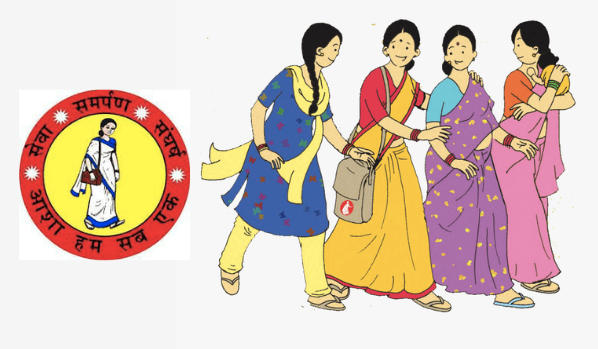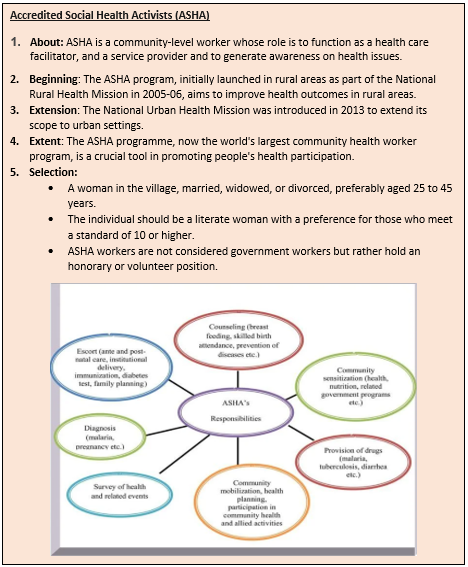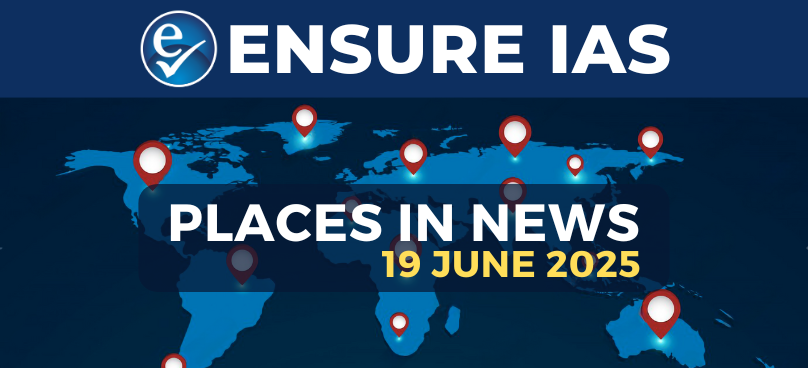- Courses
- GS Full Course 1 Year
- GS Full Course 2 Year
- GS Full Course 3 Year
- GS Full Course Till Selection
- Answer Alpha: Mains 2025 Mentorship
- MEP (Mains Enrichment Programme) Data, Facts
- Essay Target – 150+ Marks
- Online Program
- GS Recorded Course
- Polity
- Geography
- Economy
- Ancient, Medieval and Art & Culture AMAC
- Modern India, Post Independence & World History
- Environment
- Governance
- Science & Technology
- International Relations and Internal Security
- Disaster Management
- Ethics
- NCERT Current Affairs
- Indian Society and Social Issue
- NCERT- Science and Technology
- NCERT - Geography
- NCERT - Ancient History
- NCERT- World History
- NCERT Modern History
- CSAT
- 5 LAYERED ARJUNA Mentorship
- Public Administration Optional
- ABOUT US
- OUR TOPPERS
- TEST SERIES
- FREE STUDY MATERIAL
- VIDEOS
- CONTACT US
Accredited Social Health Activists
Accredited Social Health Activists

Why in News?
Recently, A study published in journal Social Science and Medicine reveals the hidden challenges faced by Accredited Social Health Activists (ASHA) in India.
- The study highlights a research gap by involving 59 ASHA workers in focus groups to discuss their work-related stress, including workload, gender, caste discrimination, and relationship dynamics.
Key concerns shown in the Report
- Caste Based Discrimination:
-
- ASHA workers were not permitted to enter homes of higher social caste residents, and sometimes were allowed entry but denied a seat on the chair.
-
- Gender-Based Harassment:
-
- ASHA workers faced derogatory comments and discriminatory behavior from community members when seen in public with non-family members.
-
- The incidents also involved interactions with male patients' relatives or counseling male clients on reproductive health and family planning.
- Toxic Work Culture:
-
- ASHA workers reported unhealthy interactions with supervisors, Auxiliary nurse midwives (ANMs), medical officers, and hospital staff, with insensitivity and lack of support being common issues.
- Domestic Tensions:
- Balancing work and domestic responsibilities frequently resulted in conflicts at home, sometimes leading to divorce threats.
- ASHA workers faced the challenge of balancing their demanding jobs with fulfilling their familial duties.
-
- Need for support Mechanisms:
-
- The study indicates that ASHA workers can effectively manage their stress through the use of appropriate support and coping mechanisms.
-
Other Concerns of ASHA Workers
- Inadequate Pay and Job Insecurity: ASHAs are the only group of individuals who do not have a fixed salary.
- Unavailability of Facilities: The individuals faced challenges in arranging transportation and ensuring proper service breakdowns at remote health facilities.
-
- Example: During conflict in Karbi Anglong districts of Assam state ASHAs got strangled in conflicted areas for weeks without food and water.
-
Way Forward

-
Role of State Governments:
-
State governments should establish mechanisms for increased remuneration for ASHAs.
-
Performance-based incentives should not be interpreted as requiring ASHAs to be paid the lowest of all health functionaries, regardless of their hard work.
-
Providing Social Security Benefits:
-
The proposal suggests expanding the benefits of social sector services, including health insurance, for ASHAs and their families.
-
Institutionalization is needed to ensure that ASHAs automatically have access to various social welfare schemes.
-
Bringing Permanence in Jobs:
-
Need is for regularization of many temporary posts in the National Health Mission and making ASHAs permanent government employees.
-
Incentivizing ASHAs in Conflicted Areas:
-
The health administration is considering incentivizing ASHAs to provide services during conflicts.
-
The psychological support provided to community health workers is equally crucial.
Conclusion
ASHAs are instrumental in achieving the goals of National Health Mission and thus their concerns, as highlighted in the report, need to be addressed in a structural manner. They must be included in the umbrella frame work of AYUSHMAN Bharat, which would provide ASHAs there due share of financial and professional status. This would also help us achieve the collective target as envisaged in Article 47 of DPSPs.




